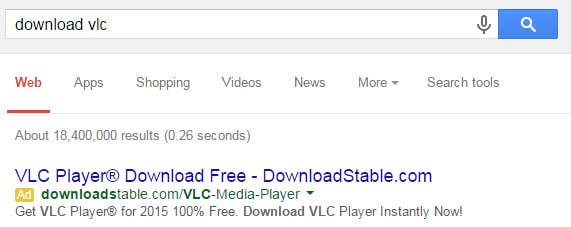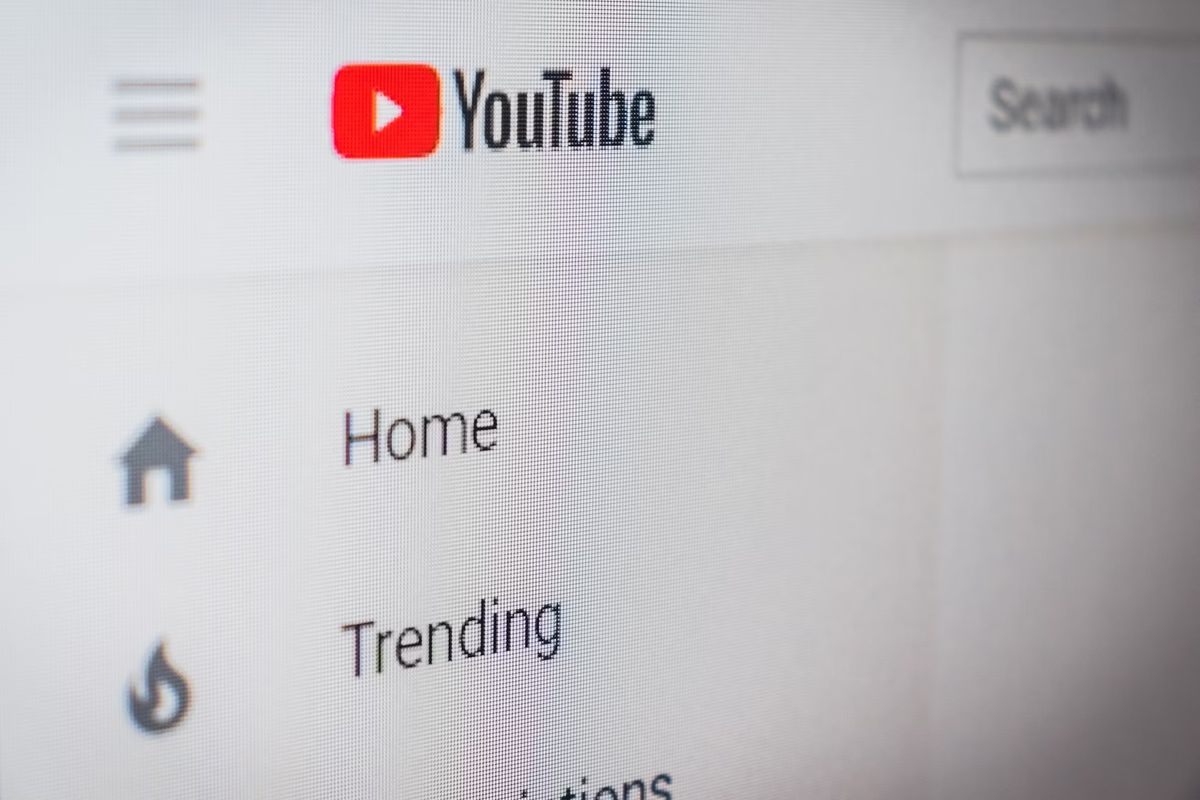Third-party download ads will be a thing of the past soon on Google

When you search for software downloads currently on Google, for instance for Firefox, VLC or Google Chrome, then ads may be displayed to you before the organic search results.
The problem with this is that advertisers were free to buy spots regardless of their relation with the software.
This led to situations where users were redirected to third-party sites that had nothing to do with the original project.
Some may have sold the free software to those users, others may have pushed malware or adware on user systems instead, and a third group may have asked for information before redirecting users to the right download.
Advertisement may not be displayed at all times depending on various factors including your location in the world but at this point in time, it is still happening on Google and other major search engines.
Note: The examples below show how third-party ads look like. They make no claim that the linked pages are serving adware or malicious software to users.
While experienced users know how to distinguish ads from real content, the similarity between ads and contents, and the fact that ads are displayed at the top of the results, makes it difficult for less tech-savvy users to make that distinction.
It needs to be noted that Google is not the only company that is serving third-party download ads currently.
Search engines like Startpage, Bing or Yahoo all display third-party download ads on their properties.



As you can see on the screenshots above, all ads link to third-party sites.
Google made the decision to do something about that finally. In an email to its advertisers, the company revealed upcoming changes to free software download ads on Google Adwords.
The two most important changes are that ads need to include the name of the promoted software and may only link to the official landing page of the software's "primary distribution source".
This means that ads have to link to the project website, set by the company, organization or individual responsible for the program, and no other destination on the Internet.
It is not clear what is going to happen if a destination has not been set by default.
The policy change goes live at the end of April at which time you should see a sharp drop of desktop software download ads on Google.
It is unclear currently if the change affects ads on third-party sites using Adsense as well. Considering that this is an Adwords policy, it is likely that it will affect ads on third-party sites as well.
Since Google is the largest adverting company, download ads will drop like a stone once the change goes live.
You will still encounter these ads on other search engines though.
Closing Words
It is about time that company's do something about deceiving download ads on their sites and third-party sites using their advertising system.





















DuckDuckGo .at least shows Official sites
Ghostery…
We are a Freeware development TEAM and this situation is very annoying ,we are working very hard to code a software and our only income is Google adsense but maybe %70 of our freeware not download from us , some third-party sites gain from our hard work , if this continue we can leave the freeware development (Unfortunatelly)
Website?
The internet really needs to clean it’s act up when it comes to advertising. Legitimate sites just aren’t getting the revenue they deserve because people just habitually block everything.
Looking forward to the day when it’s practical to use a blacklist instead of a white.
I hate how Google makes money by collecting my personal information, however, I want to be the among the first to commend them on this move. Still, I’m baffled that they would come up with something like this which will a negative impact on their revenue.
This is excellent news.. When people search for my free software, they always get paid ads directing them to commercial alternatives to my software — these companies buy ads with the name of my programs and just direct them to their own programs, making no mention of mine.. Since we have no money to pay for ads, there has been nothing we can do to stop this.
I have my adblock activated all times when using google, but it’s annoying when I’m not on my computer and I have to scroll down to ignore the scam results.
Duck duck go highlight the “official website” when searching for some brand or software.
This is number one reason why I use ad-block. Especially at download sites where ad is a Download button.
I like also that duck duck go highlights “official website”
Some people really know how to game the system on Google search results, paid spots or not. The other day I was researching a virus and saw how horrendously bad search results can become, thanks to spammers.
e.g. search on this term: “trojan.multi.regrun.b*” and look at the results. about a hundred different variations of what is basically the same site with similar names “adwarecleanNow.com”. When you go to those sites, you look on the right hand sidebar and see that they all push the exact same anti-malware payware.
Point being it’s apparently really easy to spam google search results.
In Chrome, I use Tampermonkey with a plugin “Google Hit Hider by Domain” (also available on Firefox in Greasmonkey). This tool adds a “Block” button to all search results, so that I can block that domain from ever appearing again in any future search results.